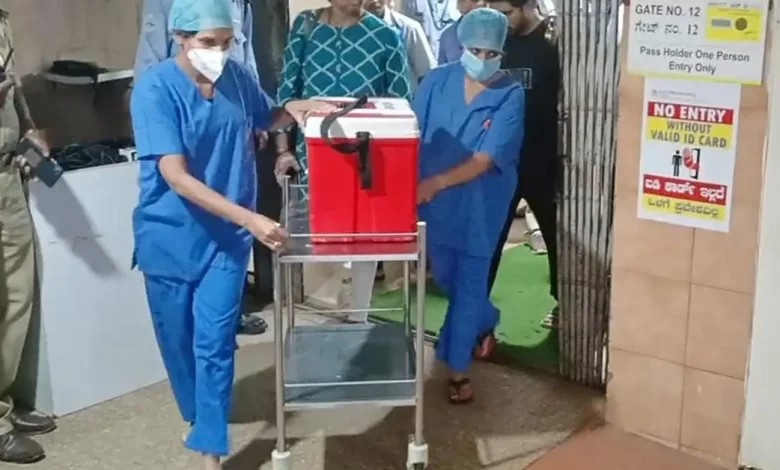Daily Current Affairs for UPSC
Organ transplantation process for foreigners in India
Syllabus: Governance[GS Paper-2]

Context: The Union Health Ministry has asked the Ministry of External Affairs to appoint a representative to oversee organ donations and transplants by foreigners in order to prevent any potential illegal activities related to money.
What is the necessity or requirement?
- People from other countries are coming to India to get organs for their bodies or give their organs to someone else.
- Sometimes, there are problems with the documents that show if they are really related to the person they are giving their organs to, or if they really live where they say they do. This can cause problems.
- The Health Ministry has asked the Foreign Affairs Ministry to choose a person who will make sure that everything is done correctly and that nobody is trying to make money from the organ transplants.
Organ transplantation:
- Organ transplant is the process of moving an organ from one person’s body to another.
- The person who donates the organ is the donor, while the person who receives it is the recipient.
- This procedure is performed to replace a damaged organ in the recipient’s body with a healthy one from the donor.
- However, despite India being the third-highest country in terms of transplant procedures, only a very small percentage of Indians actually donate their organs after death.
- This data is according to the World Health Organisation.
What regulations and guidelines are in place for organ transplantation in India?
- Human Organ Transplantation Act 1994 is the statute primarily governing organ donation in India.
- It defines the form and activity of the organisation, the process of organ retrieval and storing, organ transplantation and aims to prohibit illegal organ trade.
- Current changes in the guidelines include rather to easy that guidelines.
- Similarly, putting off the residency requirement for patients, making patients 65 years of age and older have the option of registering themselves for organ donations, and directing states not to charge registration fees for organ transplantation.
Organ donation in India:
- During the last year in the United States, organs from the dead donors held almost 8% among all transplants.
- The rising numbers of the organ transplants from the dead is a proof that they have been gaining popularity over the years, and hence the evidence show that the total number of deceased organs transplant grew from 837 in 2013 to 2765 in 2022.
- Correspondingly, the utilization of organs from both traditional and living donors, total number increased from the figure of 4,990 in 2013 to 2022 level of 15,561.
- India is the third largest country in the world after conducting lots of transplantations internationally.
- Despite that, the gulf between the increase in population that needs transplants for proper functioning of their kidneys, liver, or heart in 2022 and the actual number of transplants that are done is huge.
- Out of approximately 10k people, only about 10k received a kidney transplant and less then 3k received a heart transplant, for which the number of procedures performed was not provided.
National Organ and Tissue Transplant Organization (NOTTO):
- The NOTTO is a national organisation located in the Institute of Pathology (ICMR) that is responsible for creating a network for organ procurement and distribution.
- Its main goal is to maintain a national registry for monitoring organ donation and transplantation in India.
- The organisation operates under the Directorate General of Health Services, which is part of the Ministry of Health and Family Welfare, under the Government of India.
Source: The hindu
Practice Question:
Q. Give a brief overview of the different issues concerning organ transplantation in India.





.png)



